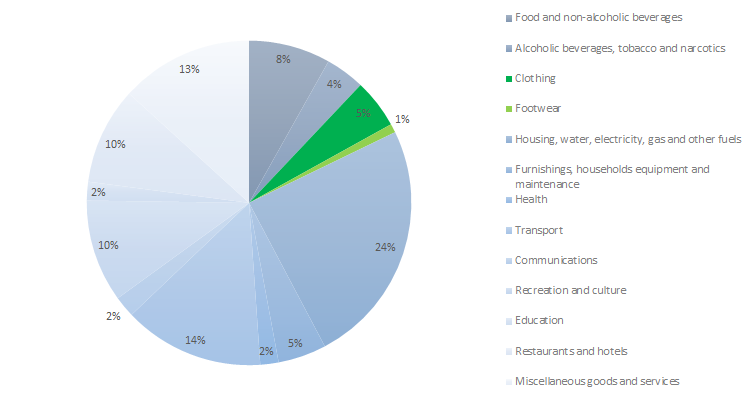https://fashionunited.uk/uk-fashion-industry-statistics/

Another website shows how fashion fuels the UK economy.
https://www.thecreativeindustries.co.uk/industries/fashion/fashion-facts-and-figures/how-fashion-fuels-the-uk-economy
I could go on, but that isn't my point. You can look up the stats for yourselves.
When I was a child money was scarce. I had very few clothes & my growing out of them was a worry for my parents. Shoes in particular were expensive. Shops were not filled with ultra cheap fashion manufactured in countries like the Far East where labour is cheap. So clothes had to last as long as possible. My mother always encouraged me to go for quality not quantity.
That said a lot of my clothes were made by her. She had an old treadle Singer sewing machine followed by an electric one. There were plenty of haberdashery shops selling fabric & notions. She could also crochet & knit. I didn't mind home made clothes, she was quite good at it. I'm now sad that I didn't appreciate her effort more. I just took it for granted.
An added bonus was that she taught me valuable dressmaking skills. So as a teenager I took over making my own clothes. It was fortunate because I ended up doing textiles at college & making my daughters clothes when I had no spare cash when I was first married.
I'm now getting to the point.
Today's fast fashion industry is toxic in ways we never dreamed of. Frequent new collections in the shops copy the catwalk immediately. The result is water pollution, the use of toxic chemicals & increasing levels of textile waste.
Many vibrant colours for example are produced with toxic chemicals which pollute rivers in countries who don't have the resources to clean them up. These chemicals disrupt hormones & can be carcinogenic.
Polyester, an unpleasant but cheap fabric, sheds micro fibres which add to levels of plastic in oceans, which do not degrade. Fleece does the same thing in industrial quantities every time it's washed. These are harmful to aquatic life & we also end up eating them with goodness knows what long term consequences.
Watch "The True Cost" - https://truecostmovie.com/ Growing cotton is definitely not harm free.
There are now, literally, mountains of textile waste because of our obsession with "Fast Fashion". We demand constant newness regardless of the consequences.
Please read the "Independent" article:-
https://www.independent.co.uk/life-style/fashion/environment-costs-fast-fashion-pollution-waste-sustainability-a8139386.html
Also watch the Stacey Dooley documentary "Fashion's Dirty Secrets". I was shocked.
I do understand that people today are more time-poor than in previous generations. Also that there has been a loss of sewing and mending skills over time. But this is doing incalculable harm. This is really dangerous. This is threatening out environment directly.
We simply can't go on like this. We have got to change. We know what harm we are doing now. Clothes are functional. The sooner we stop thinking about them in terms of fashion the better.
Dear Mrs. What a nice and authentic blogpost! I noticed it because you have mentioned FashionUnited and our research.
ReplyDeleteIt brings us joy to see the content crafted and or collected by FashionUnited being shared and reaching a greater audience. I also appreciate mentioning us. Would it be possible to link FashionUnited in the text to give credit to our editor's time-consuming work? I would appreciate it. Additionally, please make sure you spell FashionUnited as one word, not separately.
Thank you for your understanding! Kind regards, Natalia Ney
PR and Communications Manager, FashionUnited
Hi Natalia,
ReplyDeleteNo problem - Done.
Best Wishes
Val